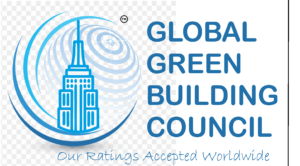The idea of sequencing a billion human genomes is an ambitious and exciting prospect with significant implications for various fields, including healthcare, genetics, and personalized medicine. While this goal has not been fully realized as of my last knowledge update in September 2021, the advancements in genomics technology and research suggest that it may become feasible in the future. Here are some key points to consider:
- Advancements in Sequencing Technology: Over the years, there have been remarkable advancements in DNA sequencing technologies. These advancements have significantly reduced the cost and time required to sequence an individual’s genome. Technologies like next-generation sequencing (NGS) and single-molecule sequencing have revolutionized genomics research.
- Large-Scale Initiatives: Several large-scale genomics initiatives have been launched worldwide with the goal of sequencing a vast number of human genomes. For example, the Human Genome Project (HGP) paved the way for large-scale genome sequencing, and subsequent projects like the 1000 Genomes Project and the UK Biobank have contributed valuable genomic data.
- Healthcare and Precision Medicine: The sequencing of a billion human genomes could have profound implications for healthcare. It could enable the development of highly personalized and precise medical treatments based on an individual’s genetic makeup. This could lead to more effective treatments, early disease detection, and better understanding of genetic diseases.
- Data Management and Privacy: Sequencing a billion genomes would generate an enormous amount of data. Managing, storing, and securing this data while respecting individuals’ privacy will be a significant challenge. Strict ethical and legal safeguards will need to be in place.
- Diversity and Representation: To fully realize the potential benefits of genomics research, it is essential to ensure diversity and representation in the genomes sequenced. This includes individuals from various ethnicities, geographic regions, and socioeconomic backgrounds to account for genetic diversity.
- Challenges and Ethical Considerations: Along with the technical and logistical challenges, there are ethical considerations surrounding the sequencing of human genomes, including issues related to consent, data ownership, and potential misuse of genetic information.
- International Collaboration: Sequencing a billion human genomes would likely require international collaboration among researchers, institutions, and governments to share resources, data, and expertise.
It’s important to note that the timeline for achieving this goal is uncertain and may extend beyond my last knowledge update in September 2021. However, the continued progress in genomics research and technology suggests that the goal of sequencing a billion human genomes is within the realm of possibility, and it holds great promise for advancing our understanding of genetics and improving healthcare outcomes.



